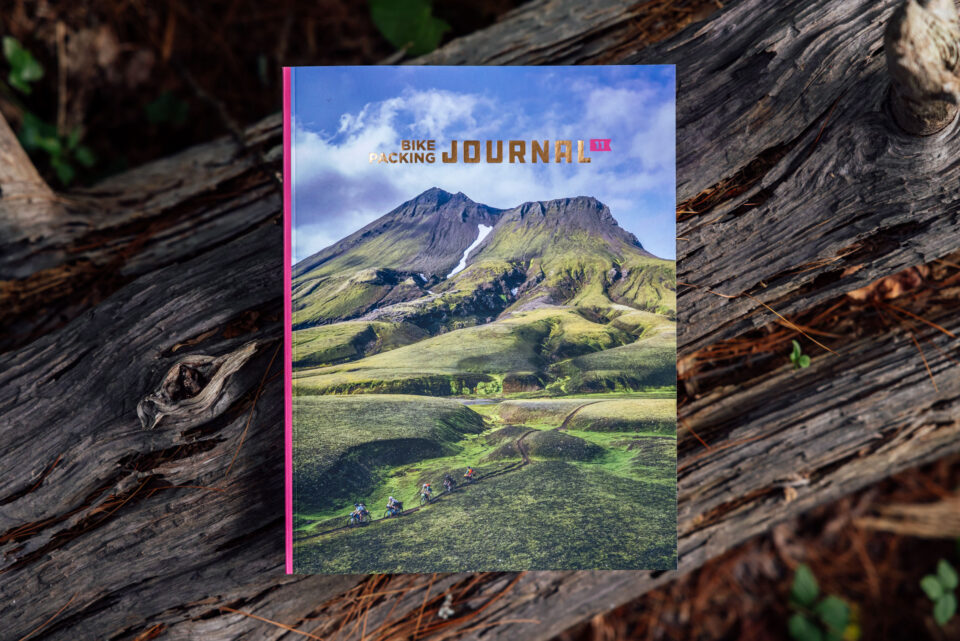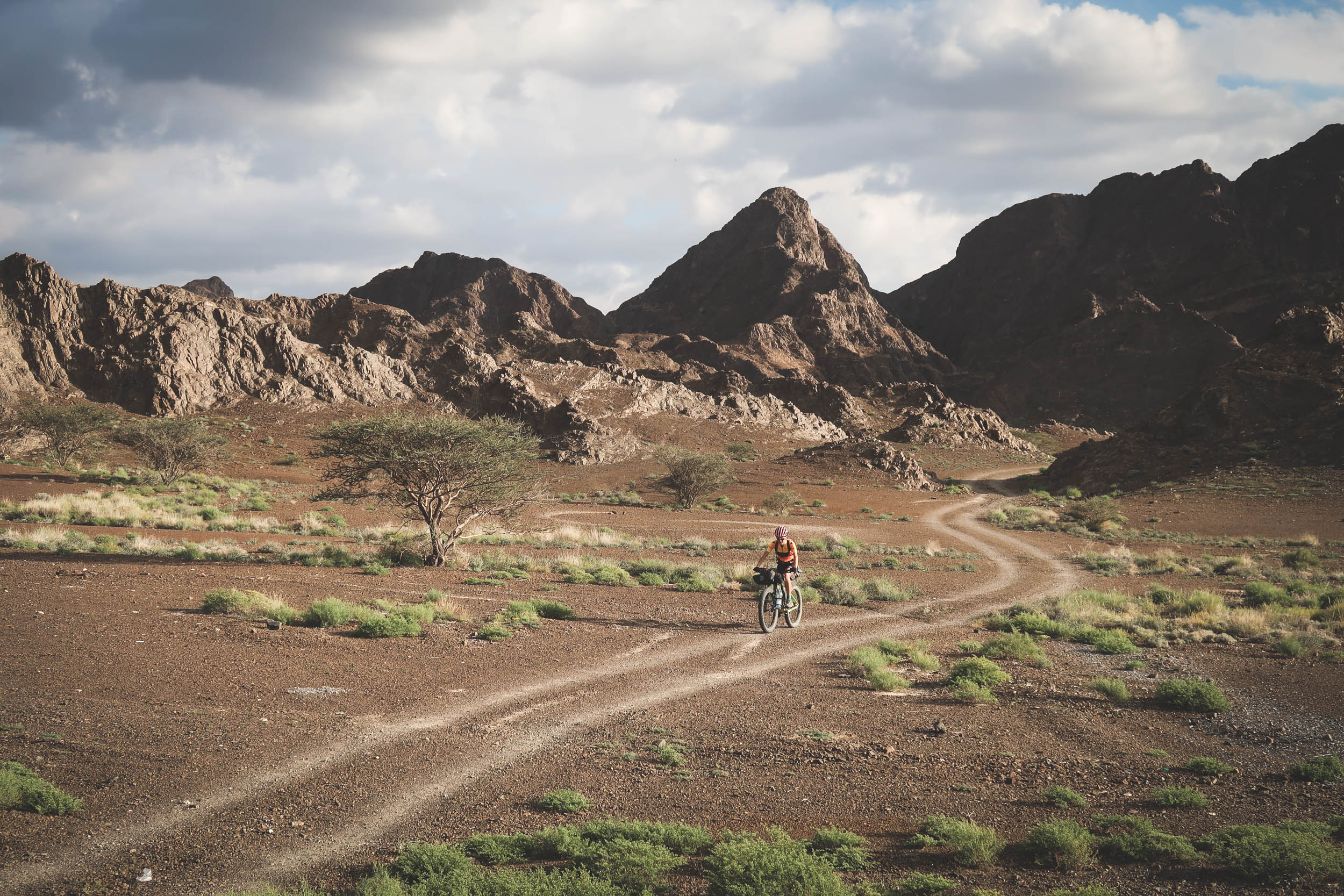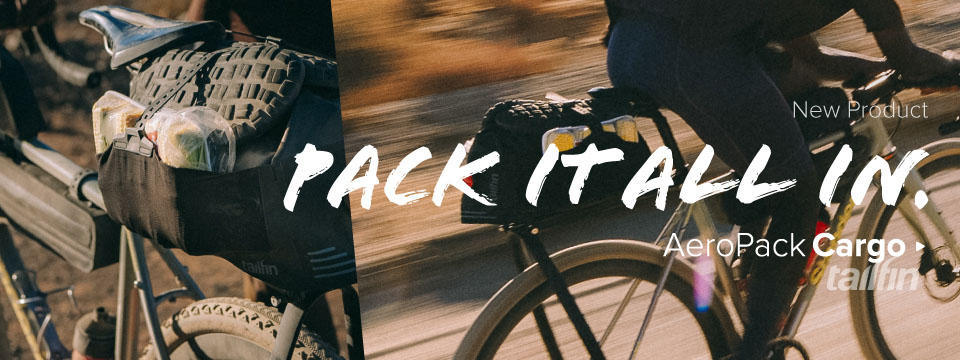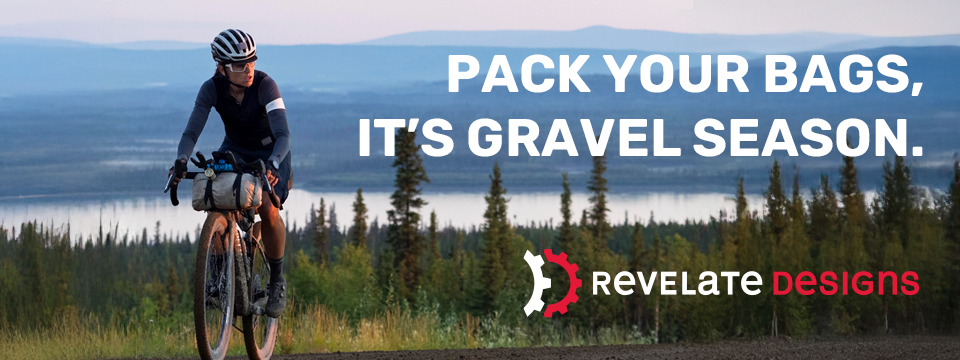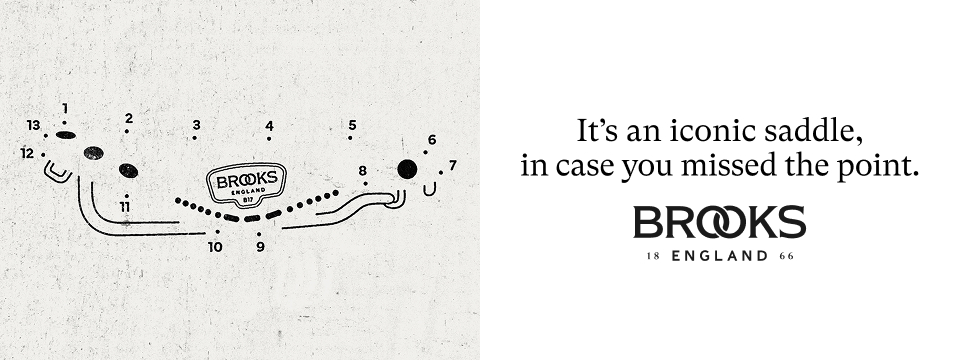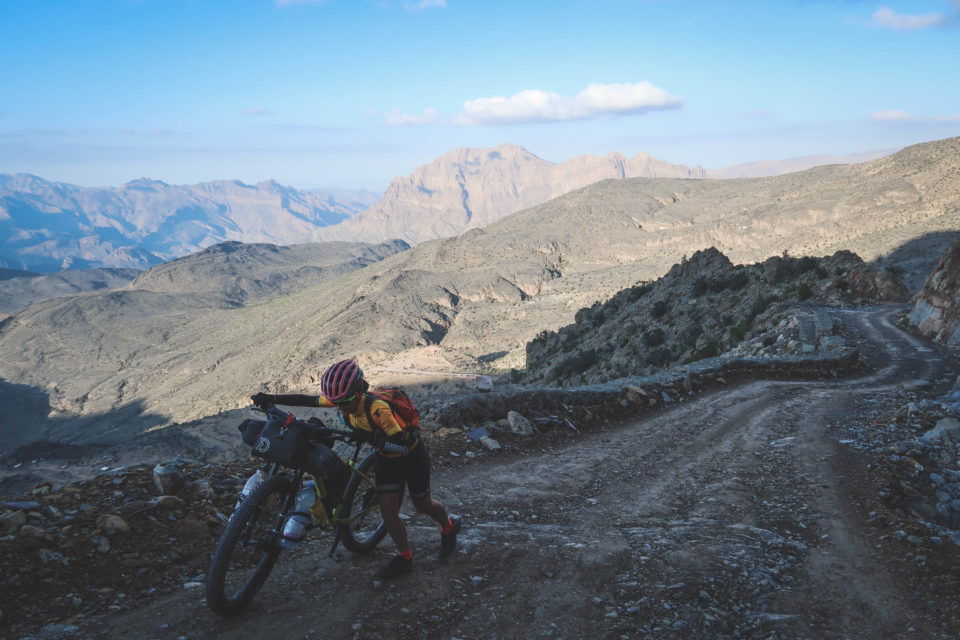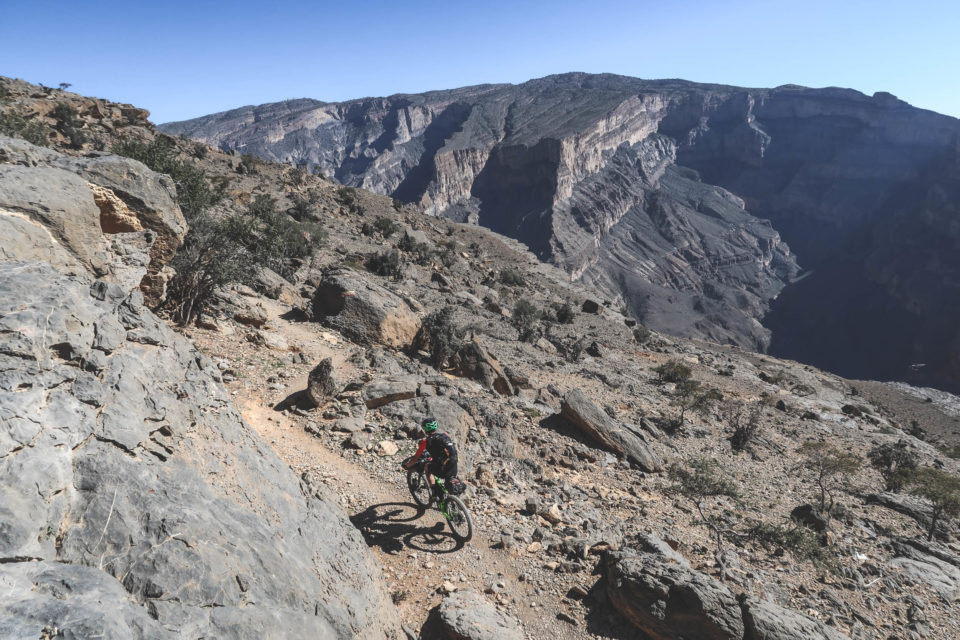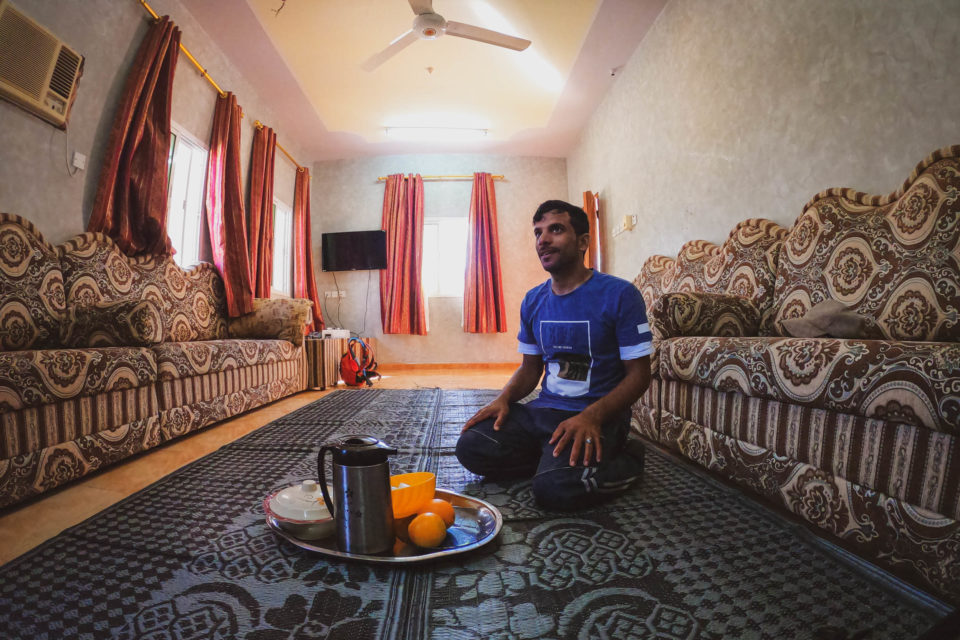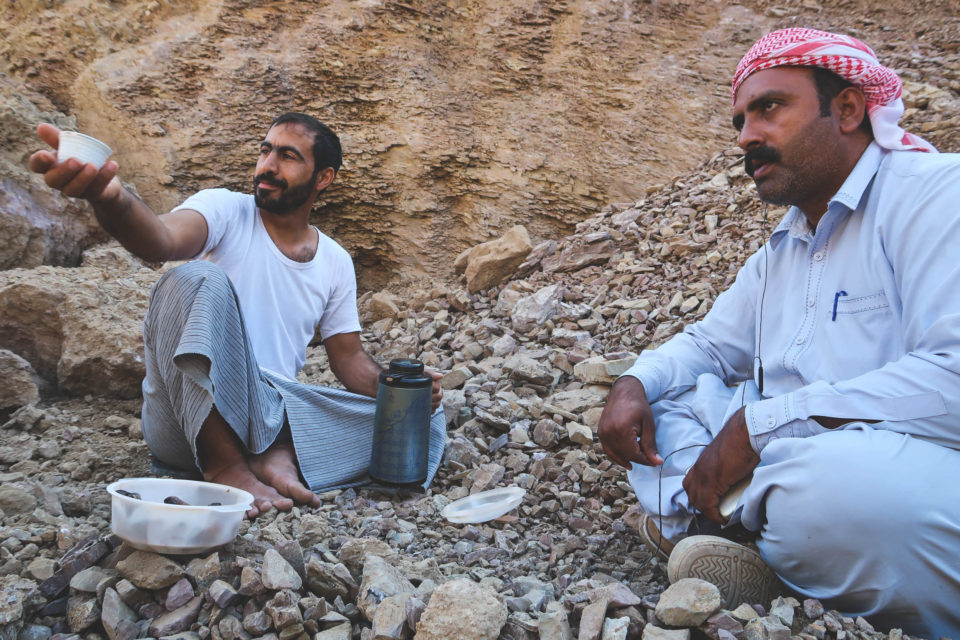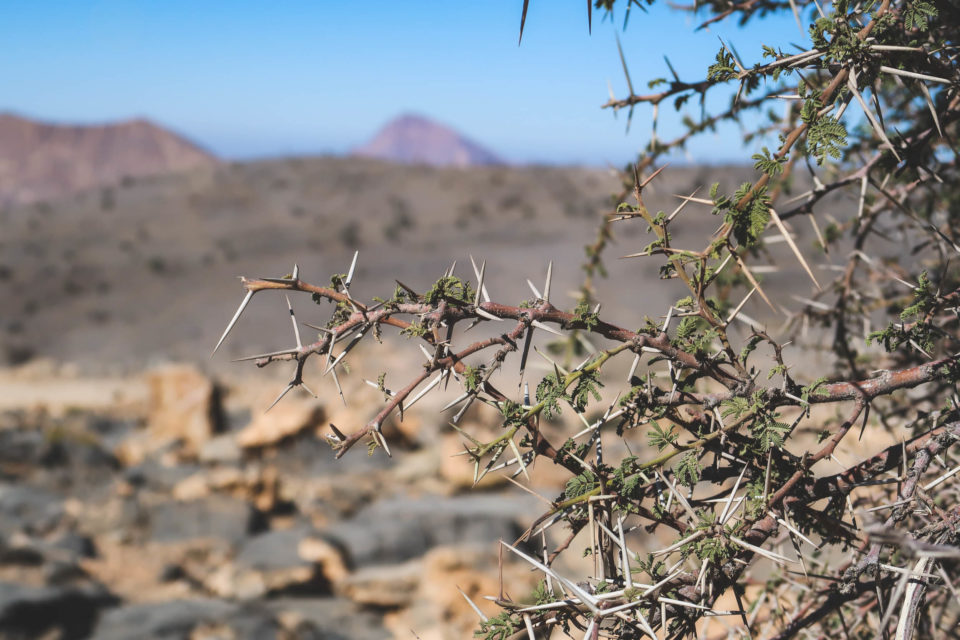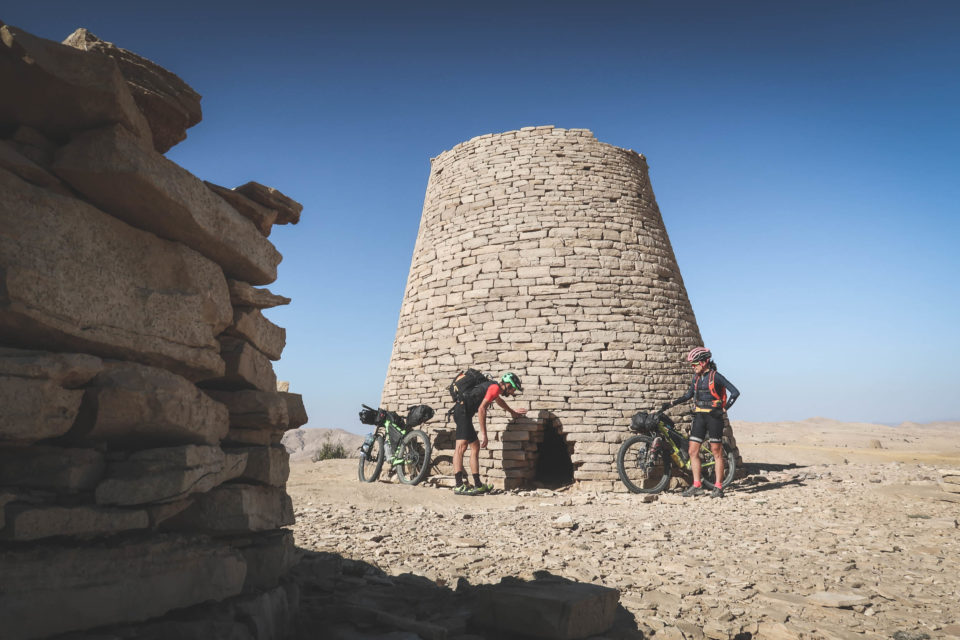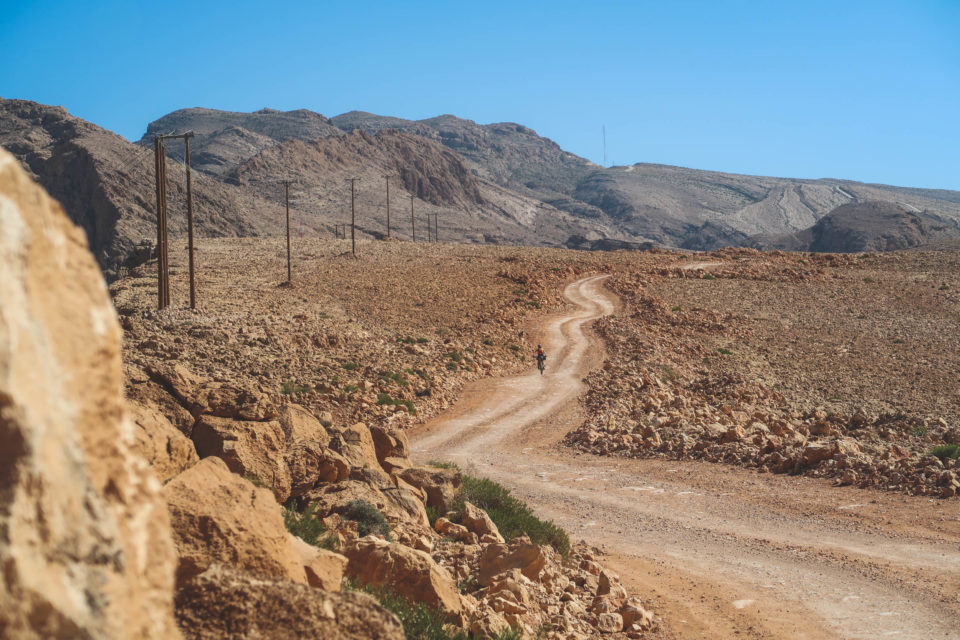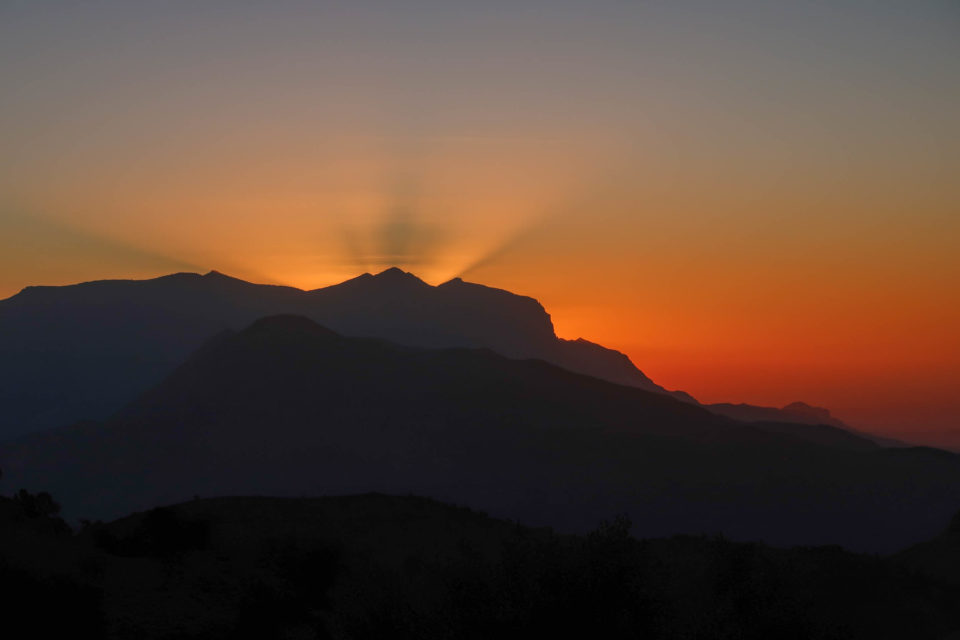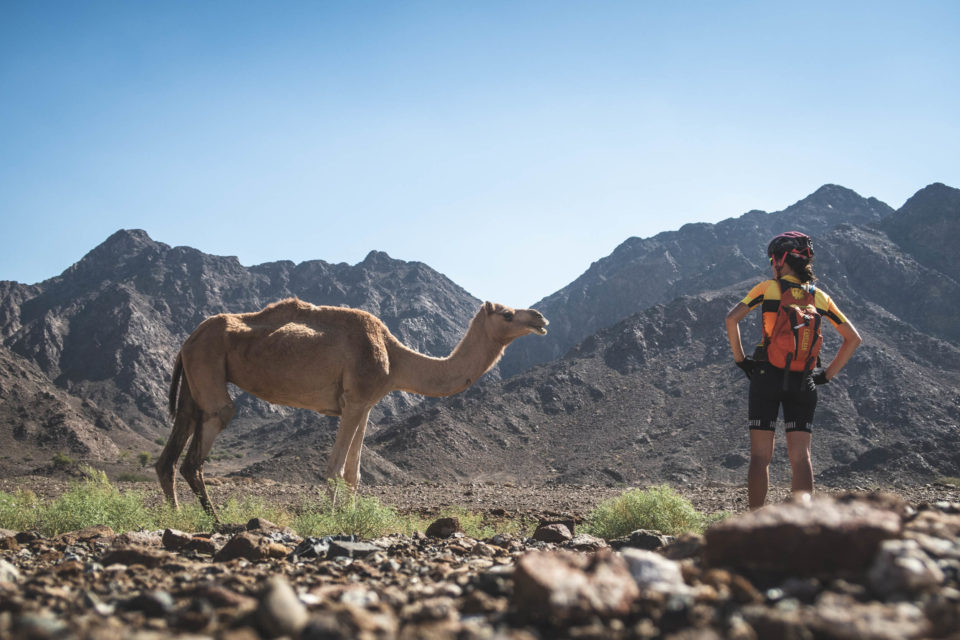Bikepacking Oman (Video)
Last year, Alba Xandri and Ricard Calmet headed out for a 1,000-kilometer bikepacking trip through Oman’s Al-Hajar Mountains, where they shot this short film capturing the magical terrain, challenging riding, and local hospitality they encountered. Watch it here, along with photos and a written recap of their trip…
PUBLISHED Feb 12, 2021
Words by Alba Xandri (@alba_xandri), video and photos by Ricard Calmet (@erreka)
We’d been interested in cycling around the Sultanate of Oman for years. It’s an infrequently visited country that many people find difficult to find on the world map. Most foreigners don’t know about the great mountain range that forms the dividing line between the desert and the Arabian Sea, the Al-Hajar Mountains (the Rocky Mountains in English), a 700-kilometer-long natural barrier. They are high mountains, which at some points reach 3,000 meters above sea level.
Oman is just starting to become known among the cycling community but due to its geographical location, it’s usually a bit of a dead-end. The existing information on routes is spotty at best. A few days before our trip, Ricard talked to Axel, a French friend, who knows the country’s roads well, and thanks to this conversation and to a little extra research, he ended up devising a route that would take us to the most mountainous areas of the Sultanate, following dirt tracks wherever possible. We’d been warned that the gradients of the tracks and roads were often staggering, sometimes more than 20%. Could that really be true? We were eager to start spinning our pedals to find out.
From the capital, Muscat, we cycled out to Jebel Shams, the mountain of the sun. In the first days, we cycled on asphalt roads without traffic and with a spacious shoulder to ride on, wide enough to fit a car, which made cycling a pleasure. It was on the weekend, Friday and Saturday, and families got together for a picnic. It rained a few days ago and the wadis were full of water. What for us could be a simple pool of stagnant water was a reason for revelry and enjoyment for the locals. A great event. Here, the phrase “water is life” is uniquely true.
The first big climb of the trip that taught us that the gradients in Oman are no joke was the Wadi Bimah, snake’s canyon. I don’t remember another climb, anywhere else in the world, so steep! As we climbed, we received many examples of generosity from Omani people. Every single Omani who passed by stopped to offer water or to ask us if we needed anything. In fact, water in Oman, despite being a very arid country, is not usually a problem for the cyclist. There are mosques scattered everywhere. Wherever there are houses, a mosque has been built, which is always a reliable source of water.
Halfway up, an Omani stopped us to invite us for kahwa (coffee) and dates. We’d never tasted this delicious combination before. This meeting was the first of many that took place along the way. “Coffee and dates” is synonymous with hospitality in Oman.
Once at the top of the pass, we looked for a sheltered place out of the wind to spend the night and pitched our tent behind a tree. We found a little corner that we immediately made our home. We saw a shepherd in the last light of day, who greeted us from a distance. He was walking along a cliff edge, jumping from stone to stone, wearing only sandals but moving in harmony with his animals. From far below, in a remote mountain village, we suddenly heard the call to prayer. The muezzin (the one in charge of making the call to prayer from the minaret of a mosque) made us stop what we were doing listen intently. It was a magical moment.
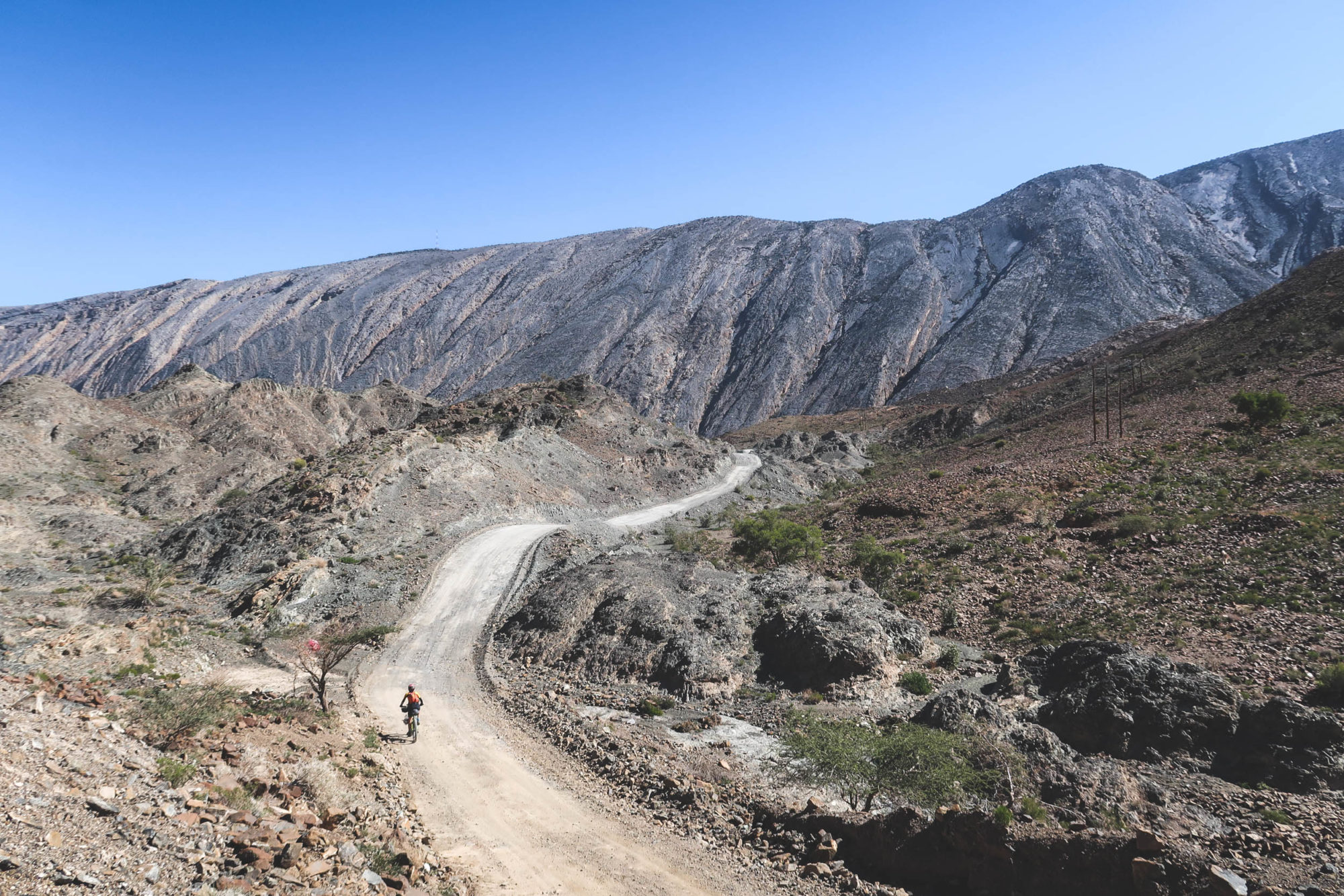
The next day, we continued to follow mountains, hills, and wadis. We headed to Wadi Ghul, known as the Great Canyon of Arabia, as it lies just below the great walls of Jebel Shams. There was water and the cycling was difficult in some sections. The vertical walls are impressive, especially when the wadi narrows. We managed to get to the end and camped there. There was absolute silence, only the croaking frogs accompanied us through the night. We would never have imagined hearing frogs in this corner of the world.
On Christmas Eve, we climbed up to Jebel Shams, another great climb. We spent the night up high again, a cold one after which we awoke to a frosty morning. We were in no hurry so we left in the middle of the morning after the sun had been up for several hours. We enjoyed being at the top because there was nowhere to ride but down.
In the afternoon, we returned to the valley and were again amazed by the hospitality and generosity of the Omani people. We’ve been fortunate to experience a similar feeling a few other times in other countries we’ve cycled in, such as Iran and Japan. More than anything, we felt a debt of gratitude. Experiencing so much generosity makes us feel eager to reciprocate in some way and we never know how, and we never feel like we can do enough in return. Why does someone who doesn’t know us give us a bag of fruit? Why does another Omani pay for our shopping in a supermarket? Why does a stranger (we still don’t know who it was) pay for our lunch? Is this generosity in its purest sense?
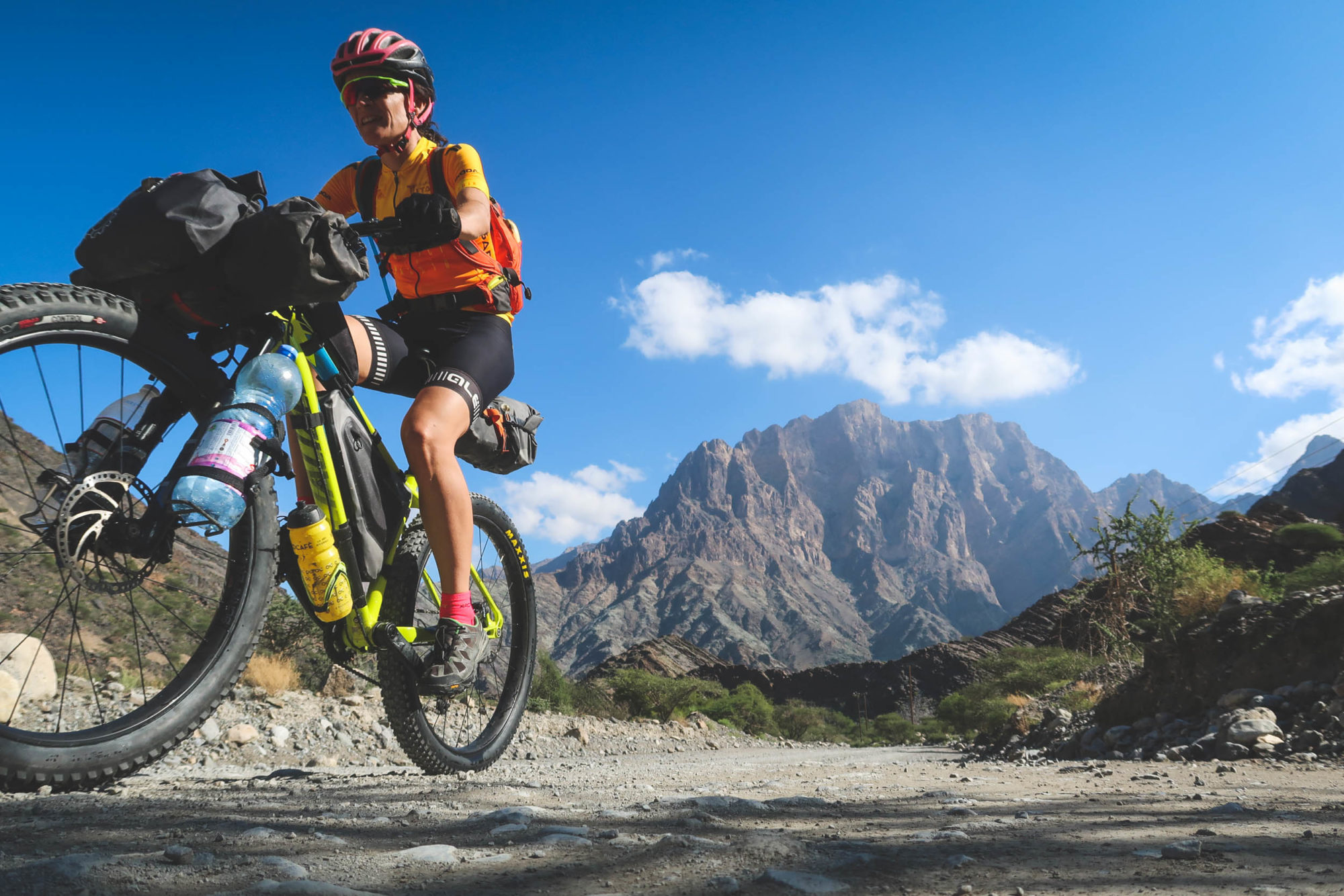
In Nizwa, a young Omani man who told us he is a cyclist invited us to have lunch at his house. In Oman, most houses usually have a very large guest room surrounded by sofas and with a large mat on the floor. In another room, crammed with books, his wife prepared a meal for us: rice, chicken, almonds, dates that we had to dip in tahini sauce, balls made of dates covered with grated coconut, fruit, water, coffee, milk, fruit juice, and isotonic drinks. They left us alone, despite our insistence. According to their tradition, guests enjoy food more if left alone.
After we’d finished, our host returned and introduced us to his wife and his two children. His wife was charming and polite. From time to time, we looked at each other while her husband talked to us; they were looks of understanding that spoke for themselves. I believe being a woman in Oman must be extremely challenging in many ways.
The next day, we cycled through the plains on our way into the mountains. It was a monotonous day, if such a thing as monotony exists when cycling through a foreign country. It was almost dark when we saw a football field near a village called Mahaliyah. As with the mosques, there is usually water next to the football fields in any village. It was the perfect place to camp.
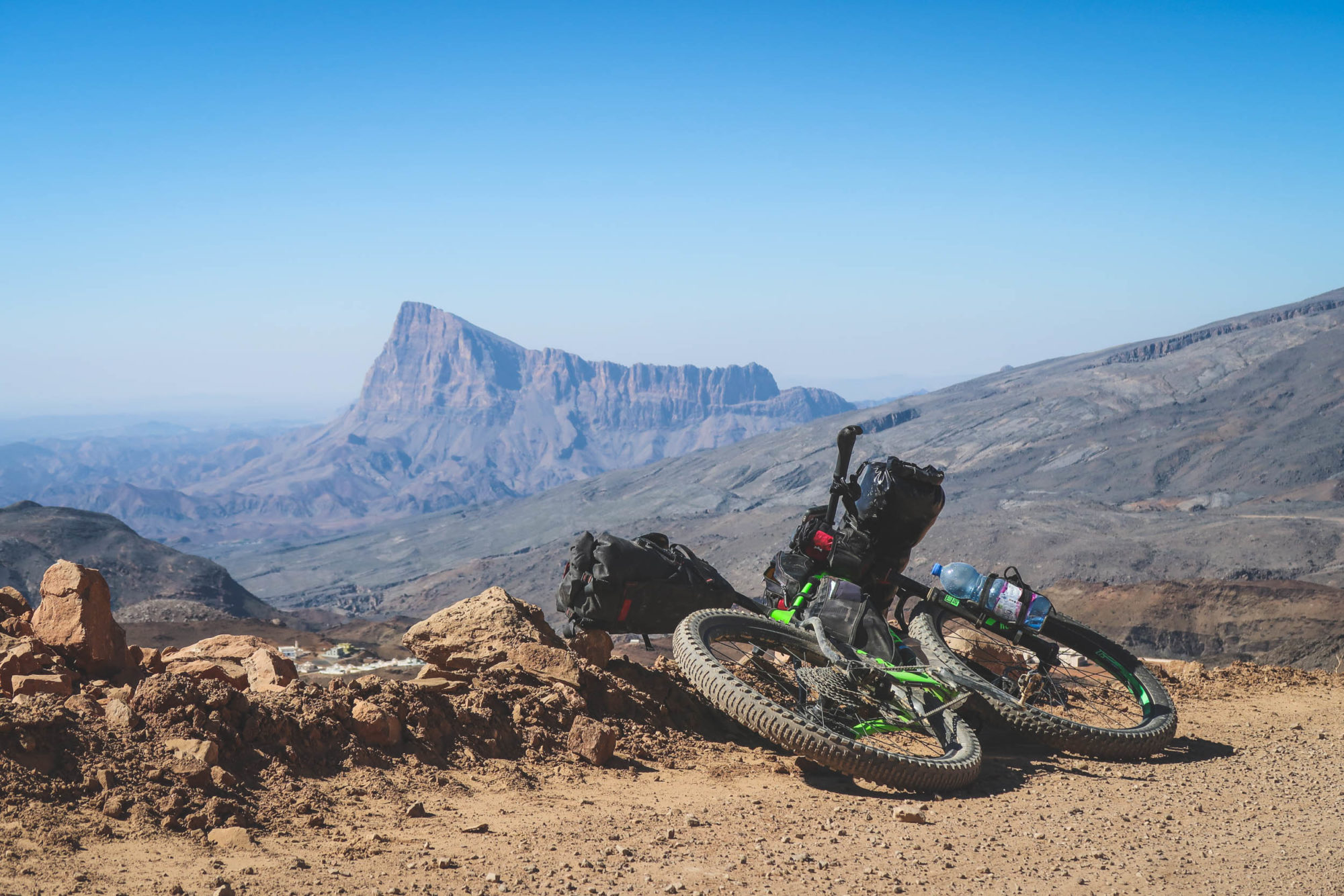
While we were pitching the tent, a car arrived and a young man, Amam, came over to us. We asked him if we were bothering anyone. He came to tell us that today we would be his guests and he wanted to know what time we wanted dinner. We told him we had everything we needed. He insisted and after an hour he returned with a pot full of skewers of lamb with vegetables, which we enjoyed with raw white turnips and bread. He also installed a light plugged into a battery and improvised some plastic sheets so we could sit down on the ground for dinner.
The next morning, still thinking of Amam, we headed towards the Salma Plateau, with plenty of challenging gradients. In the area of Jebel Shams, we met more tourists on our route, given the proximity to Muscat, but here we were the only foreigners. The villages we passed were very poor and the men were no longer dressed in the typical white ankle-length, collarless robe called dishdasha. They live in an arid and harsh land where living conditions are not easy at all. As travelers, it was not a day for complaining.
A few years ago, these villages weren’t yet connected by roads. Thanks to the beloved Sultan Qabus ibn Said Al Said (who died a few days after we returned home), the country has developed a more than acceptable network of roads and tracks. However, the Salma Plateau is still an inhospitable area, where the main source of income is from goats.
We spent that night camping next to some tomb towers, which were discovered in the 1990s when a helicopter pilot flew over this stony plateau. They are estimated to be between 4,000 and 5,000 years old. It was really fascinating to see how well they are preserved. We arrived in one of the areas with the highest concentration of tombs right as the sun was beginning to set. It began to cool but the place was magical with the spear-like towers silhouetted against the golden light of dusk. We were lucky enough to find a fire pit with stones for sitting and a pile of firewood, and our bonfire under the starry sky was mystical.
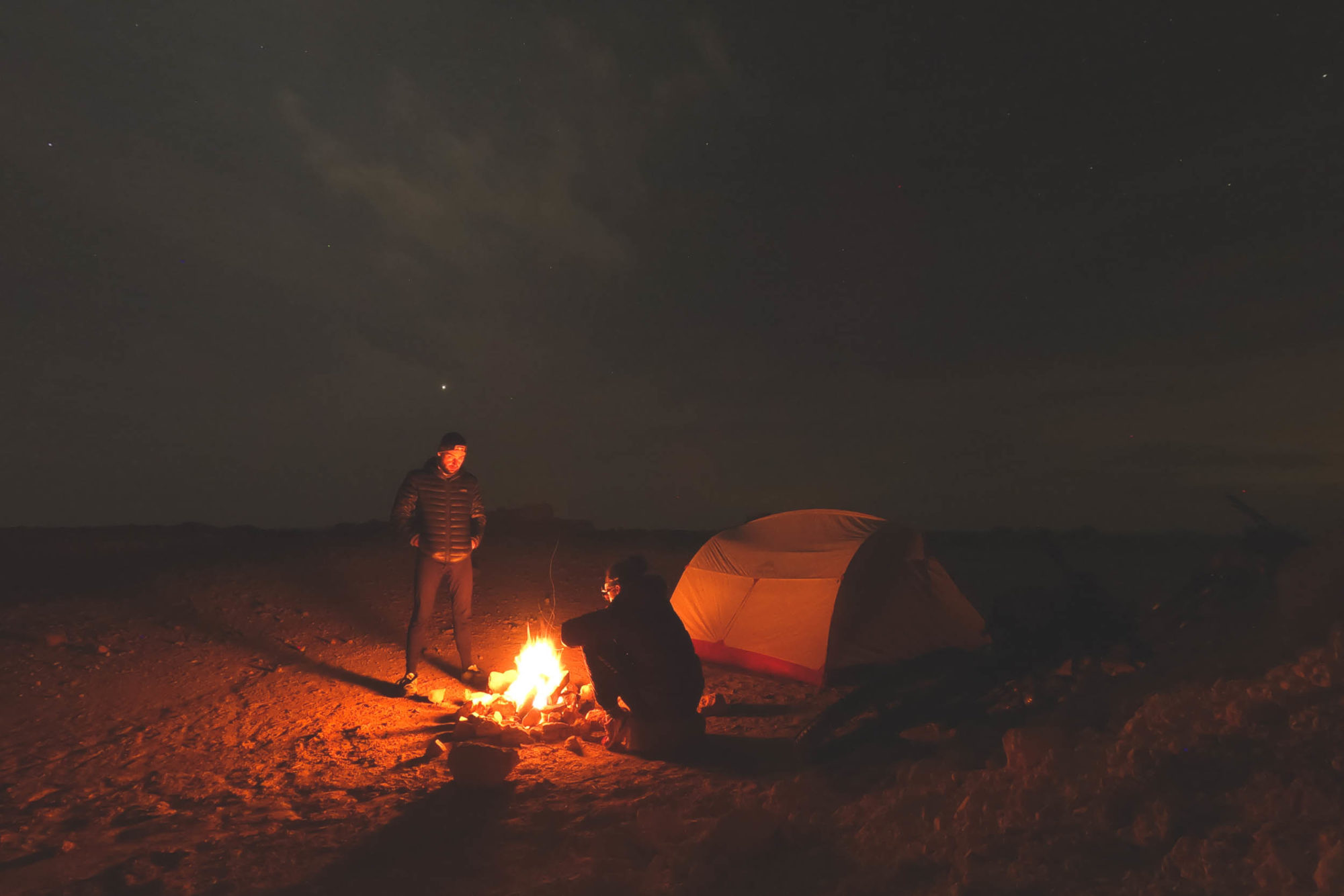
After waking up the next morning, we cycled until we reached the highest point of the Salma Plateau, then pedaled straight down to sea level, 2,000 meters of descent in one run. Our adventures in the mountains had officially ended and we reached the Arabian Sea. The last days were hot and we cycled on asphalt, stopping in fishing villages and savouring some good food.
In the end, Oman offered us all the necessary ingredients for a great two-wheeled trip: free camping across the country, beautiful mountains and big climbs, paved roads with little traffic, safety, delicious food, and comfortable temperatures.
Back home, one day as I was leaving work, I bumped into Quim Sala, a Catalan writer and philosopher, who is a retired professor. I asked him if he knew where the culture of hospitality in Oman comes from. He was certain he did, and explained to me that we had to go back to the time of caravans crossing the deserts. He told me that without the generosity and solidarity of everybody looking after each other, the caravans would not have managed the inhospitable desert environment. Cooperation and interdependence was key to thriving in those arid and uninhabited lands.
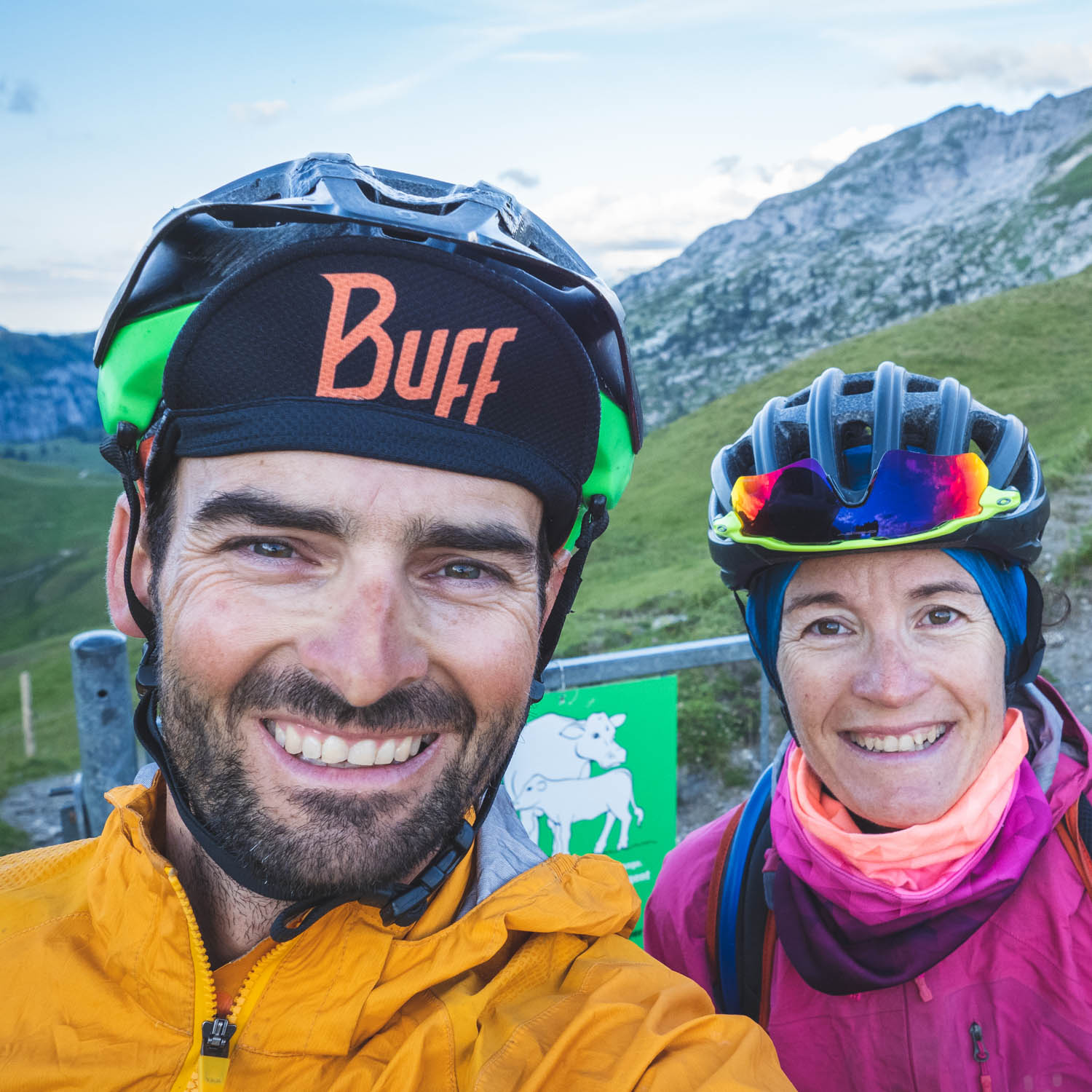
About Alba Xandri and Ricard Calmet
Alba Xandri and Ricard Calmet cycled the world over three years, pedaling 55,000 kilometers through 41 countries. They wrote a book about their trip called La Magia des Pedals. They returned home to the Catalan Pyrenees in 2017, and these days they’re both addicted to bikepacking. Find them on Instagram at @alba_xandri and @erreka.
Want to see more from Alba and Ricard? Don’t miss their recent video and story from the Hope 1000 Route in Switzerland.
Please keep the conversation civil, constructive, and inclusive, or your comment will be removed.



